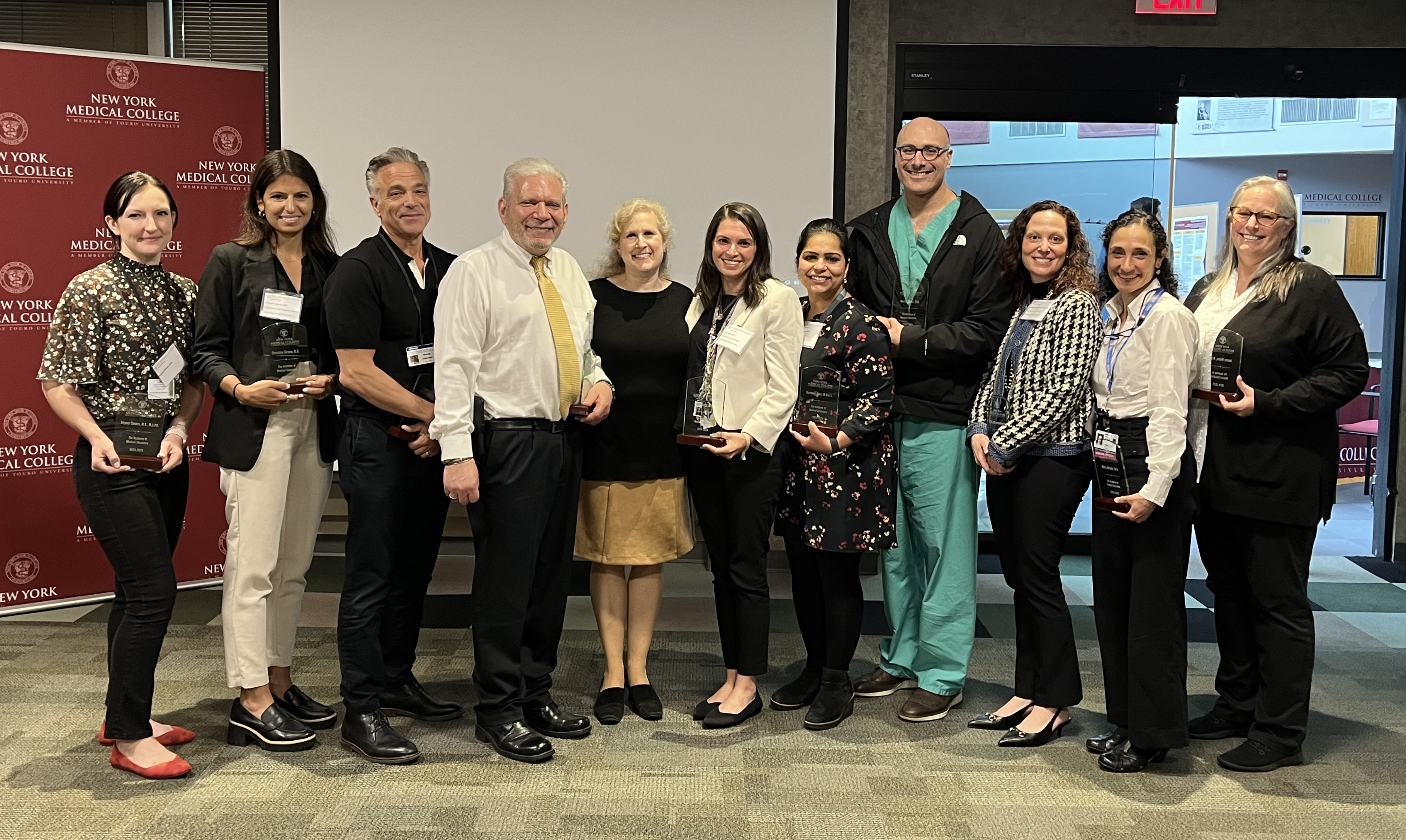The Academy of Medical Educators Wraps Up Successful First Year
The Cohort of Clinicians and Basic Scientists Participated in Collaborative Sessions and Undertook Projects to Enhance Their Clinical Practice and Pedagogy

The first cohort of The Academy of Medical Educators wrapped up a highly successful year in May with presentations of the year-long projects they had undertaken to enhance their clinical practice and pedagogy. Despite the many demands on their time, the 13 busy clinicians and basic scientists spent the year engaged in numerous collaborative sessions to produce projects ranging from enhancing compassion through storytelling and narrative medicine in education to the impact of visual aids on learning retention and engagement to placing “free hand” thoracic pedicle screws.
“This remarkable group of teachers and co-learners embodies resilience and an unwavering commitment to their personal and professional growth and that of those around them,” said Monica Glina, Ed.D., associate dean for faculty development, who led The Academy, which is an initiative of the Offices of Faculty and Academic Affairs and Faculty Development. “This group challenged themselves, allowed themselves to be vulnerable, and, as I often say, truly went with the flow. They formed genuine bonds, created a strong community of inquiry and practice, and showed up, not just for their responsibility to The Academy but for each other. That kind of dedication is rare, and it is powerful.”
Throughout the year, Academy members met monthly to focus on a variety of areas and learned from guest speakers on a range of topics, including educational and research ontologies, aesthetics in education, and negotiating authority.
Cohort members responded overwhelmingly positively to their experience in The Academy, with some suggesting it should be required for all educators and even asking if it was possible to reapply next year. Key takeaways included the importance of empathy, understanding learners’ struggles, designing reflective curricula, and striving for balance as educators.
For Roger Chirurgi, M.D., associate professor of emergency medicine and house advisory dean, one of the most important insights he gained was the recognition of how little he knew about pedagogy and how much more he needed to learn to become a better “teacher of doctors.”
“I have an expression I use with my students: ‘Teaching is easy, I can teach you something in minutes. Learning is easy, you can learn it instantaneously. The hard part is remembering, for days, months, or years,” he says. For his Academy project, Dr. Chirurgi focused on improving the retention and long-term recall of knowledge transfer from teacher to student through multiple memory tools. “For good or bad, much of medical education is predicated on learning facts and theories, which the learner will use for the rest of their careers. Over the years, however, it seemed many medical students simply relied on looking things up on Google, or now with AI, because the work needed to remember was too hard. So, for me to be an effective teacher, and to ensure that things that are taught are remembered, long term, teaching ‘how to remember’ is an important, and possibly the most important part of true knowledge transfer.”

